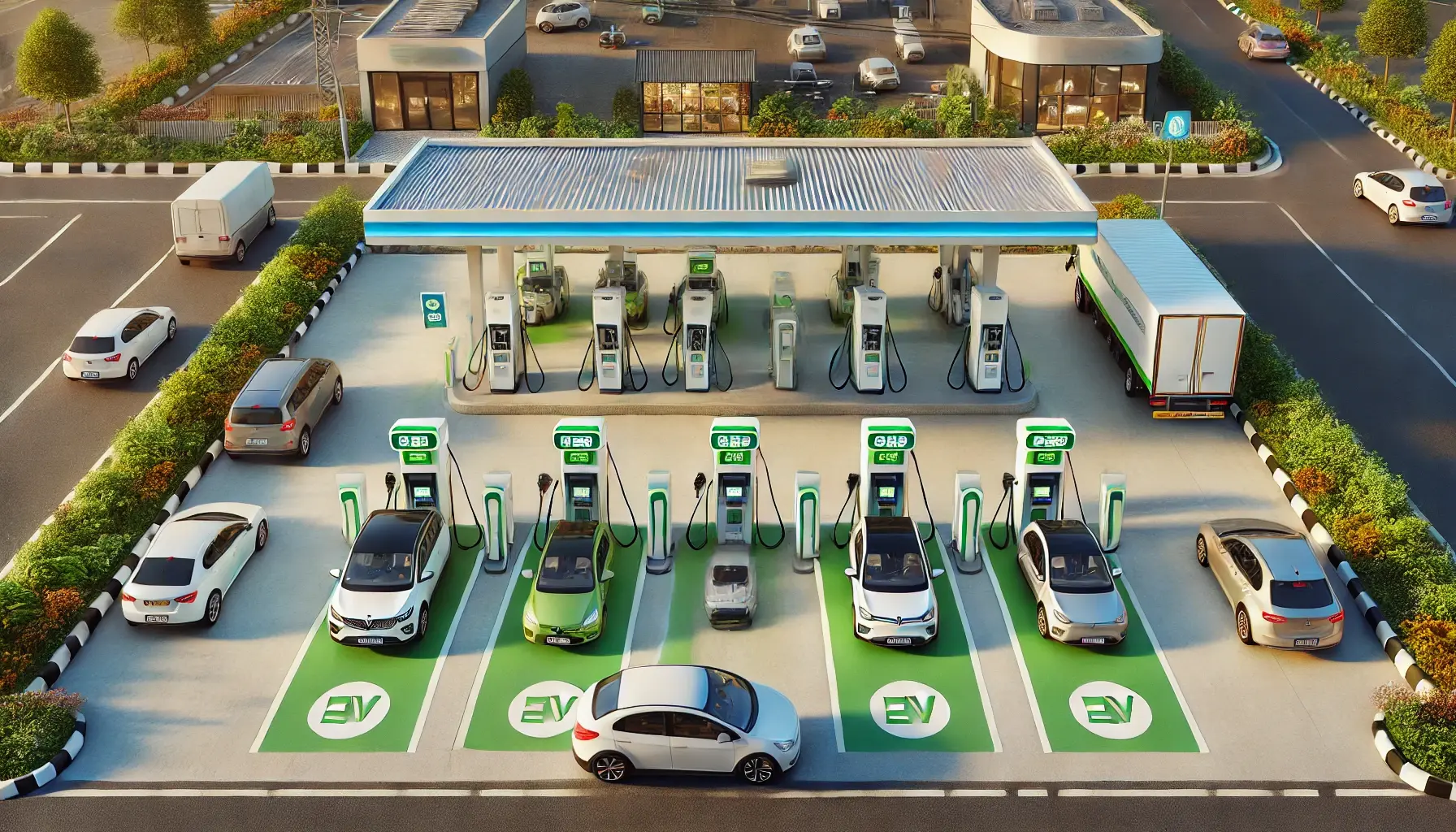
- numocity
- November 21, 2024
The Paradigm Shift: How EV Fleets Are Transforming Charging Operations
Picture this : a bustling fleet of delivery vehicles sets out each day to fulfill hundreds of orders. Traditionally, these vehicles would stop at gas stations, leading to delays, fluctuating fuel costs, and inefficiencies. With the transition to electric fleet vehicles, the concept of “fueling” has undergone a remarkable transformation. Now, fleet managers like Alex, who oversees a large logistics operation, have access to advanced EV fleet charging management solutions that simplify operations, enhance efficiency, and reduce costs.
This shift isn’t just a revolution for fleet operators; it’s also a game-changer for charge point operators (CPOs). By offering targeted fleet charging solutions, CPOs can optimize charger utilization and establish reliable revenue streams. The future of transportation is electric, and both CPOs and fleet managers are at the heart of this exciting transition.
The Challenges of Transitioning to EV Fleets
For Alex, adopting an electric fleet wasn’t without its challenges. The team grappled with range anxiety, constantly wondering whether their vehicles would have enough charge to complete demanding delivery schedules. Charging complexities added another layer of difficulty, as managing a growing fleet required a systematic approach to ensure vehicles were charged without disrupting operations. On top of that, there was the initial cost of setting up the necessary infrastructure, leaving Alex questioning whether the investment was truly worthwhile.
These challenges are common among fleet managers considering EVs. But with the right tools & solutions, such as a comprehensive charging management system, these obstacles can be effectively addressed.
How Charging Management Systems (CMS) Solve Real Problems
When Alex’s fleet transitioned to EVs, the charging management system became their operational lifeline. It allows users to schedule charging sessions for vehicles based on the next day’s routes, energy requirements, and the availability of off-peak electricity rates. This smart energy management approach significantly reduced energy expenses and ensured the fleet was always ready to go.

Additionally, the software integrated with public electric vehicle charging stations to leverage the RoamingHub solution, which allowed the fleet to access a vast network of charge point operators (CPOs). RoamingHub provided seamless interoperability, ensuring that Alex’s drivers could charge anywhere without needing multiple accounts or payment methods. With real-time updates on the nearest available station, drivers experienced no delays in locating and utilizing charging points. Payments, which once involved tedious reimbursement processes, were now seamlessly handled through a centralized platform. Whether charging at a depot, public station, or partner network through RoamingHub, drivers simply plugged in and charged. The costs are automatically processed through the fleet’s account, enabling user-friendly, fast, and efficient operations. This improved driver productivity, reduced downtime, and ensured Alex’s fleet met its delivery targets consistently. The integration of RoamingHub with the charging management system was a game-changer, creating an interconnected and flexible charging ecosystem.
How CPOs Benefit from Fleet Charging
For charge point operators, the rise of electric fleets opens up new opportunities. Fleet charging ensures consistent charger utilization, as vehicles are typically charged at predictable intervals. With centralized billing systems, CPOs can provide fleets with easy payment options, reducing administrative overhead. By catering to fleets, CPOs establish strong, long-term partnerships, creating a reliable and steady revenue stream. This symbiotic relationship between fleets and CPOs drives growth for both parties while accelerating the adoption of EVs.
Building an Optimized EV Fleet
Alex’s journey to optimizing the fleet wasn’t just about switching to electric vehicles; it was about creating a system that could scale, adapt, and deliver results. By integrating depot and public charging options, the fleet gained flexibility, allowing drivers to charge vehicles wherever needed. The backend access provided by the fleet management software gave Alex real-time insights into vehicle performance, energy usage, and operational efficiency. This data-driven approach allowed the team to make informed decisions, improving overall fleet productivity.
The paradigm shift in fueling—from gas pumps to electric charging stations—was not just about technology but also about mindset. The fleet’s transition to EVs highlighted the importance of sustainability and cost-effectiveness, demonstrating that the initial investment in EV infrastructure was worth it.
What EV Fleet Operators Should Focus On
For operators considering a transition, the key to success lies in scalability, integration, and data-driven insights. Solutions must grow alongside the fleet, integrate seamlessly with existing operations, and provide the analytics needed to optimize performance. Beyond that, sustainability is becoming a non-negotiable priority, with clients increasingly favoring businesses that align with global environmental goals.
The Future of Fleet Charging
Six months after implementing an advanced EV fleet charging management solution, Alex’s logistics company will experience a dramatic transformation. The fleet’s operational costs will decrease, downtime will be significantly reduced, and drivers will enjoy the ease of user-friendly charging options. By partnering with a network of charge point operators, Alex will establish a steady and reliable charging infrastructure that will benefit both the fleet and the CPOs.
Alex’s decision to transition to electric fleet vehicles will reflect a broader trend across industries, where the future of fueling will become electric—and it’s here to stay. By embracing EV software solutions and flexible charging management systems, fleet operators and charge point operators will drive a new era of efficiency, profitability, and sustainability. The journey to an optimized EV fleet will begin with a single step toward electrification, and its benefits will ripple across the ecosystem for years to come, contributing to a cleaner, greener planet and a more sustainable future for all.


